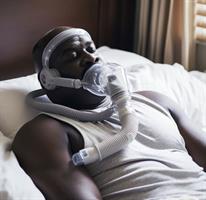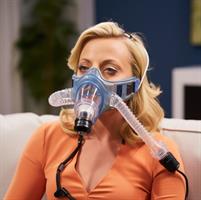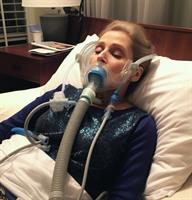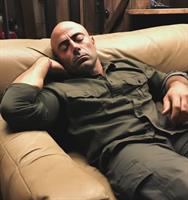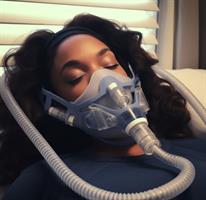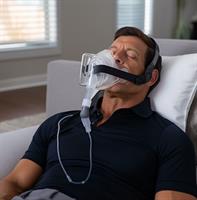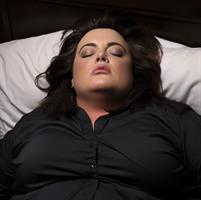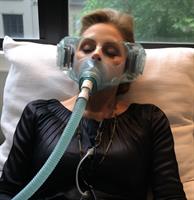Did you know that sleep apnea affects around 22 million Americans, including numerous famous people with sleep apnea? It’s a condition that can cause significant health issues if left untreated, but it’s also one that many people are unaware of or misunderstand.
In this article, we’ll explore the personal stories of six incredible celebrities who have battled sleep apnea, shining a light on this common yet serious sleep disorder.
By understanding their experiences, we can raise awareness of the condition and encourage others to seek the help they need.
We’ll delve into the types of sleep apnea, its symptoms and risks, the importance of diagnosis and treatment, and the connection between sleep apnea and heart health.
By the end of this blog post, you’ll have a greater understanding of sleep apnea and the inspiring stories of the celebrities with sleep apnea who have faced it head-on.
Key Takeaways
-
Celebrities are leading the way in raising awareness about sleep apnea and breaking the stigma surrounding it.
-
Learn from their inspiring stories of overcoming sleep apnea to empower yourself to take control of your health and prioritize it.
-
Explore various treatments available, such as custom mouthpieces, for a better quality of life!
Famous Faces Battling Sleep Apnea
It’s no secret that many celebrities have faced their own battles with sleep apnea, a condition that can have dire consequences if left untreated. From legendary basketball players to comedy stars, these famous faces have taken steps to address their sleep apnea and raise awareness about the importance of proper diagnosis and treatment.
These celebrities, in sharing their personal experiences, not only aid in dismantling the stigma surrounding sleep apnea but also motivate others to seek assistance for their own sleep issues.
We’re going to delve into the inspiring stories of:
-
Shaquille O’Neal
-
Amy Poehler
-
Carrie Fisher
-
Joe Rogan
-
Shonda Rhimes
-
Tony Robbins
-
Rosie O’Donnell
Shaquille O'Neal - Basketball Legend
Shaquille O’Neal, the legendary basketball player, participated in a sleep study at Harvard Medical School’s Division of Sleep Medicine and was diagnosed with sleep apnea in 2011. He has since been proactive in managing his condition with a CPAP machine, showcasing the importance of proper diagnosis and effective treatment.
Shaq’s openness about his sleep apnea and CPAP therapy has inspired many people to seek help for their own sleep issues. Shaq, in raising awareness and sharing his personal journey, has emerged as a powerful advocate for sleep apnea education and treatment.
Amy Poehler - Comedy Star
Amy Poehler, the incredibly talented actress, comedian, and writer, was diagnosed with sleep apnea and has since taken a proactive approach to managing her condition. She uses a CPAP machine with a humidifier, which has provided her with numerous benefits, including better sleep quality and reduced snoring.
Amy’s experience highlights the importance of proper diagnosis and treatment for sleep apnea. Sharing her story has aided in raising awareness about the condition and the benefits of using a CPAP machine, thereby encouraging others to seek help and enhance their sleep quality.
Carrie Fisher - Hollywood Icon
Carrie Fisher was an actress of great acclaim, beloved by Star Wars fans across the globe. Tragically, in late 2016, she passed away due to sleep apnea. Her untimely death emphasizes the importance of recognizing and treating sleep apnea to prevent serious health issues and even death.
Carrie’s story serves as a sobering reminder of the potential consequences of untreated sleep apnea. Raising awareness of her experience can encourage others to seek help for their own sleep issues and prioritize their health and well-being.
Joe Rogan
Joe Rogan, famed UFC commentator and podcast magnate, has openly discussed his challenges with snoring and sleep apnea.
In search of better sleep, Rogan opted for a mouthpiece, which he claims helps by preventing his tongue from obstructing his airway. His candid revelation on his podcast emphasizes the significance of addressing such sleep disorders, illuminating the fact that they don't only plague athletes but also those who narrate their feats, including combat sports commentators globally.
Rogan's on-air disclosure provides an intimate look into the issues many face, highlighting the unforeseen challenges that come with increased muscle mass, particularly in the neck region.
Shonda Rhimes - TV Powerhouse
Shonda Rhimes, the powerhouse producer and screenwriter behind hit shows like Grey’s Anatomy and How to Get Away with Murder, has been diagnosed with sleep apnea and shared her struggles with it in her book ‘The Year of Yes’. After seeking treatment, Shonda reported that her sleep apnea symptoms vanished.
Shonda’s journey with sleep apnea highlights the importance of proper diagnosis and treatment. Her story serves as an inspiration for others to seek help and take control of their sleep and overall health.
Tony Robbins - Motivational Guru
Life coach and best-selling author Tony Robbins has candidly discussed his severe sleep apnea diagnosis in seminars and interviews. Known for his humorous approach, Tony even joked about having to travel with his “sexy” CPAP device.
Sharing his experience and adding a touch of humor, Tony Robbins lends a hand in breaking the stigma surrounding sleep apnea. His openness encourages others to seek help and embrace the necessary treatment for their sleep issues.
Rosie O'Donnell - Comedian & Actress
Rosie O’Donnell, the talented comedian, actress, and TV personality, found diagnosing her sleep apnea and receiving CPAP treatment to be a life-changing experience. After just one night of treatment, Rosie felt a significant improvement in her sleep quality and overall well-being.
Sharing her story, Rosie O’Donnell exemplifies the importance of early diagnosis and effective treatment for sleep apnea. Her experience serves as an inspiration for others to seek help and prioritize their health.
Understanding Sleep Apnea
Sleep apnea is a serious sleep disorder that affects millions of people worldwide who suffer from sleep apnea. This sleep apnea condition is characterized by repeated pauses in breathing during sleep, which can lead to a range of health issues if left untreated.
There are two main types of sleep apnea: Obstructive Sleep Apnea (OSA) and Central Sleep Apnea (CSA). Each type has its own set of symptoms and risks, making it essential to understand the differences and seek appropriate treatment.
Understanding the types of sleep apnea, their symptoms, and potential risks, enables us to better recognize the condition and seek help if needed. Early diagnosis and treatment are crucial in preventing serious health complications and improving overall well-being.
Obstructive Sleep Apnea (OSA)
The most common form of sleep apnea, Obstructive Sleep Apnea (OSA), is characterized by episodes of complete or partial collapse of the upper airway during sleep. OSA is typically caused by a blockage in the airway, resulting from factors such as:
-
obesity
-
large tonsils
-
a deviated septum
-
a large tongue
Common symptoms of OSA include loud snoring, excessive daytime sleepiness, and observed episodes of stopped breathing during sleep. It’s vital to recognize these symptoms and seek a proper diagnosis to minimize the risk of serious health complications, such as high blood pressure, stroke, and heart attack.
Central Sleep Apnea
Central Sleep Apnea (CSA) is a less common form of sleep apnea, occurring when the brain fails to signal the muscles to breathe during sleep. The exact cause of CSA is not yet known, but it may be linked to various factors, such as:
-
obesity
-
heart failure
-
stroke
-
certain medications
Symptoms of CSA can include pauses in breathing during sleep, shallow breathing, and excessive daytime sleepiness. Similar to OSA, it’s essential to recognize these symptoms and seek a proper diagnosis to minimize the risk of serious health complications, such as high blood pressure, stroke, and heart attack.
Symptoms and Risks
The symptoms of sleep apnea can be disruptive and potentially dangerous if left untreated.
Common signs include:
-
Excessive daytime sleepiness
-
Loud snoring
-
Observed episodes of stopped breathing during sleep Other indications may include:
-
Morning headaches
-
Dry mouth
-
Difficulty concentrating
Untreated sleep apnea can lead to serious health issues, as sleep apnea contributed to an increased risk of high blood pressure, stroke, heart attack, diabetes, and depression.
Being aware of these risks and taking steps to manage the condition is crucial for maintaining overall health and well-being.
The Importance of Diagnosis and Treatment
Preservation of your health and well-being relies on the diagnosis and treatment of sleep apnea. Untreated sleep apnea can take a toll on your health, leading to serious long-term consequences. Recognizing the symptoms and seeking a proper diagnosis will allow you to take control of your sleep and overall health.
Various treatment options are available to help treat sleep apnea, including sleep studies, CPAP machines, and alternative treatments. Understanding the importance of diagnosis and treatment can empower you to prioritize your health and seek the help you need.
Sleep Study
Sleep studies are essential for diagnosing sleep apnea and accurately assessing its severity. A sleep study, or polysomnogram, can provide valuable insight into diagnosing sleep disorders such as sleep apnea and help determine the best treatment for the condition.
There are two main types of sleep studies: in-lab sleep studies and home sleep studies. In-lab sleep studies are conducted in a sleep lab and involve monitoring a person’s sleep patterns and breathing, while home sleep studies involve wearing a device that monitors sleep patterns and breathing at home.
Diagnosing sleep apnea and determining appropriate treatment hinge on both types of sleep studies.
CPAP Machines
CPAP (Continuous Positive Airway Pressure) machines are a common and effective treatment for managing sleep apnea. These machines use a motor to draw air from the room and push it through a tube and mask, providing a steady stream of air pressure to keep the airway open during sleep.
If you suffer from severe sleep apnea, check out the best CPAP machines.
Using a CPAP machine can help reduce snoring, enhance sleep quality, and minimize the risk of other health issues related to sleep apnea. Although using a CPAP machine can be uncomfortable and noisy, regular maintenance and cleaning can ensure you’re getting the most out of your device.
Alternative Treatments
Alternative treatments for sleep apnea include:
-
Oral appliance therapy
-
Weight loss
-
Positional therapy
-
Upper airway stimulation therapy
-
Surgery
These treatments are available for those who may not be suitable candidates for CPAP therapy or prefer other options.
Oral appliance therapy, for example, involves wearing a custom-made mouthpiece while sleeping, which helps keep the airway open and promote better sleep by gently moving the lower jaw forward. Each alternative treatment option offers its own set of benefits and can be considered based on individual needs and preferences.
The Connection Between Sleep Apnea and Heart Health
Sleep apnea is closely linked to heart health, with untreated cases increasing the risk of heart-related issues. Research has shown that sleep apnea can lead to higher rates of:
-
High blood pressure
-
Stroke
-
Heart failure
-
Coronary heart disease
Recognizing the connection between sleep apnea and heart health allows us to understand the importance of seeking a proper diagnosis and treatment better. Addressing sleep apnea not only improves sleep quality but also helps maintain overall heart health and well-being.
Raising Awareness and Breaking the Stigma
Celebrities with sleep apnea play a significant role in raising awareness and dismantling the stigma surrounding the condition. Several celebrities have died of sleep apnea and this has helped to bring the issue to the forefront. By sharing their personal experiences and advocating for better understanding and treatment, these famous individuals are inspiring others to seek help and prioritize their health.
Their stories showcase the importance of recognizing the symptoms of sleep apnea, seeking a proper diagnosis, and finding the most effective treatment options. By raising awareness and breaking the stigma, we can empower more people to take control of their sleep and overall well-being.
Public Advocacy
Public advocacy by famous individuals plays a significant role in raising awareness about sleep apnea. Celebrities like:
-
Shaquille O’Neal
-
Amy Poehler
-
Carrie Fisher
-
Shonda Rhimes
-
Tony Robbins
-
Rosie O’Donnell
Many individuals have bravely shared their personal experiences and emphasized the importance of seeking treatment through programs like those offered by Harvard Medical School’s Division.
Their advocacy aids in educating the public about sleep apnea, its symptoms, and the importance of diagnosis and treatment. This increased awareness can lead to more people seeking help and improving their quality of life.
Personal Experiences
Personal experiences shared by celebrities can inspire others to seek diagnosis and treatment for sleep apnea. By openly discussing their journeys with sleep apnea, these famous individuals are helping to break the stigma surrounding the condition and encouraging others to seek help.
Their stories not only raise awareness but also provide hope and inspiration for those who may be struggling with sleep apnea. Sharing their experiences, these celebrities demonstrate that overcoming sleep apnea and leading a healthier, happier life is possible.
Role of Sleep Apnea Mouthpieces
Sleep apnea mouthpieces, as endorsed by some celebrities, can be a potential lifesaving treatment option for those struggling with sleep apnea. These custom-made devices work by gently repositioning the lower jaw, keeping the airway open and promoting better sleep.
The use of sleep apnea mouthpieces has been shown to improve breathing, sleep quality, and reduce snoring. By advocating for this treatment option, celebrities are helping to raise awareness about the benefits of sleep apnea mouthpieces and their potential to improve the lives of those affected by the condition.
Summary
In this blog post, we’ve explored the personal stories of six inspiring celebrities who have battled sleep apnea and raised awareness about the condition. We’ve also discussed the types of sleep apnea, their symptoms and risks, the importance of diagnosis and treatment, the connection between sleep apnea and heart health, and the role of sleep apnea mouthpieces in improving quality of life.
By understanding the experiences of these famous individuals and the importance of addressing sleep apnea, we can encourage others to seek help, prioritize their health, and ultimately lead happier, healthier lives.
Frequently Asked Questions
Which famous people have sleep apnea?
Shaquille O'Neal, William Shatner, Rosie O'Donnell, and Regis Philbin are some of the well-known celebrities who have experienced sleep apnea.
Can you live a full life with sleep apnea?
Living with sleep apnea is absolutely possible, and in many cases even treatable with lifestyle changes and medical interventions. If addressed appropriately, you can continue to live a full life with the condition.
What is the life expectancy with someone with sleep apnea?
Sleep apnea is a serious sleep disorder that can reduce life expectancy if not managed properly. Studies show that patients with the condition who develop it before the age of fifty have a life expectancy between 8 and 18 years. The condition is caused by a blockage of the airway during sleep, which can lead to pauses in breathing and a decrease in oxygen levels. Treatment options include lifestyle changes, such
Has anyone reversed sleep apnea?
Sleep apnea can be cured successfully in many cases and CPAP therapy is the gold standard for treatment. Lifestyle changes such as losing weight, increasing physical activity, and avoiding alcohol too close to bedtime can help improve symptoms and reverse even severe sleep apnea in some cases.
What are the common symptoms of sleep apnea?
Sleep apnea can cause excessive daytime sleepiness, loud snoring and episodes of stopped breathing while sleeping, so make sure to get checked if you experience any of these symptoms.
